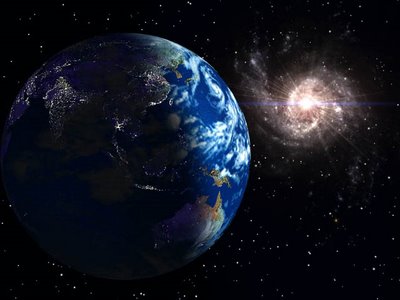1Polar ice caps melting
The ice caps melting is a four-pronged danger.
First, it will raise sea levels. There are 5,773,000 cubic miles of water in ice caps, glaciers, and permanent snow. According to the National Snow and Ice Data Center, if all glaciers melted today the seas would rise about 230 feet. Luckily, that’s not going to happen all in one go! But sea levels will rise.
Second, melting ice caps will throw the global ecosystem out of balance. The ice caps are fresh water, and when they melt they will desalinate the ocean, or in plain English – make it less salty. The desalinization of the gulf current will “screw up” ocean currents, which regulate temperatures. The stream shutdown or irregularity would cool the area around north-east America and Western Europe. Luckily, that will slow some of the other effects of global warming in that area!
Third, temperature rises and changing landscapes in the artic circle will endanger several species of animals. Only the most adaptable will survive.
Fourth, global warming could snowball with the ice caps gone. Ice caps are white, and reflect sunlight, much of which is relected back into space, further cooling Earth. If the ice caps melt, the only reflector is the ocean. Darker colors absorb sunlight, further warming the Earth.
 Economic consequences
Economic consequences
2 Most of the effects of anthropogenic global warming won’t be good. And these effects spell one thing for the countries of the world: economic consequences. Hurricanes cause do billions of dollars
in damage, diseases cost money to treat and control and conflicts exacerbate all of these.
Green houses
gases stay can stay in the atmosphere for an amount of years ranging from decades to hundreds and thousands of years. No matter what we do, global warming is going to have some effect on Earth. Here are the 5 deadliest effects of global warming.
3 Spread of disease
As northern countries warm, disease carrying insects migrate north, bringing plague and disease with them. Indeed some scientists believe that in some countries thanks to
global warming, malaria has not been fully eradicated.
 4 Warmer waters and more hurricanes
4 Warmer waters and more hurricanes
As the temperature of oceans rises, so will the probability of more frequent and stronger hurricanes. We saw in this in 2004 and 2005.
 5 Increased probability and intensity of droughts and heat waves
5 Increased probability and intensity of droughts and heat waves
Although some areas of Earth will become wetter due to global warming, other areas will suffer serious droughts and heat waves. Africa will receive the worst of it, with more severe droughts also expected in Europe. Water is already a dangerously rare commodity in Africa, and according to the Intergovernmental Panel on Climate Change, global warming will exacerbate the conditions and could lead to conflicts and war.







